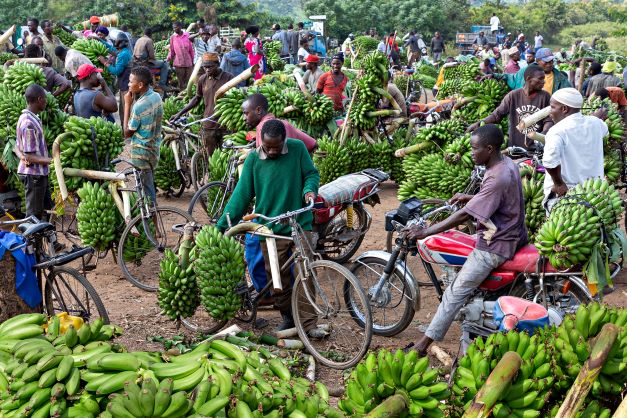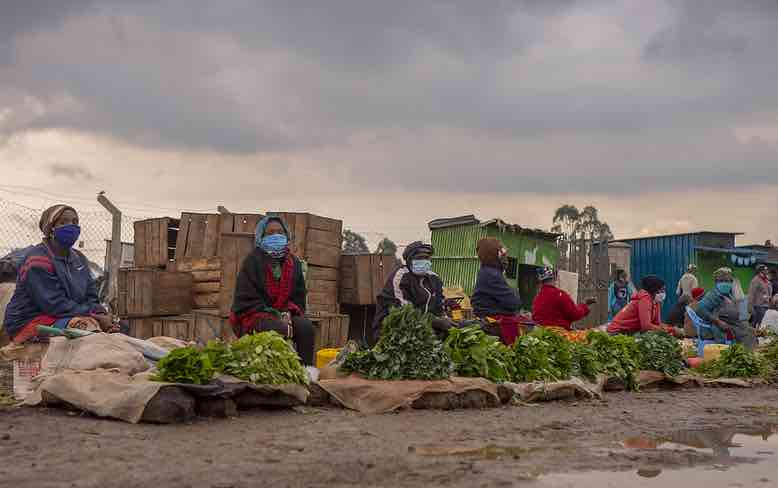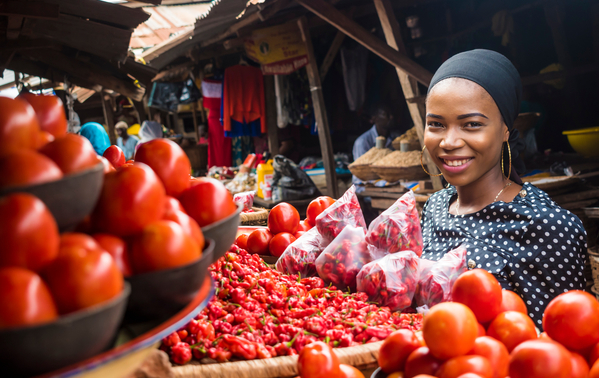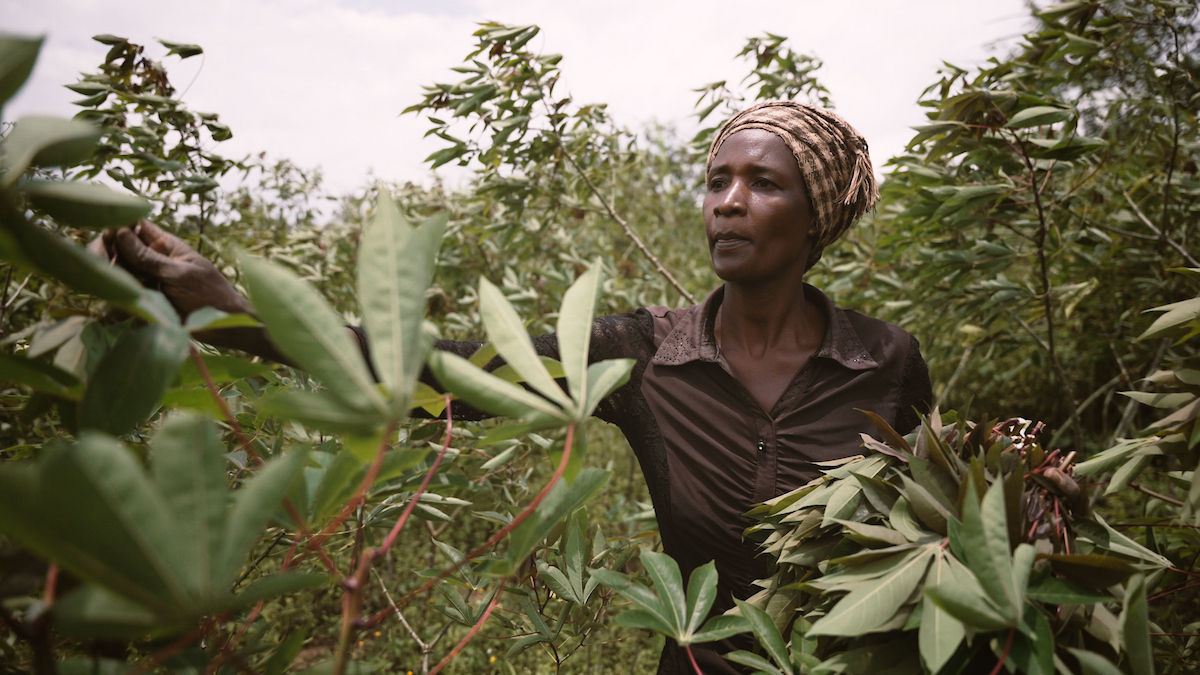The Africa Food Systems Forum (AFSF) has consistently served as a pivotal platform for shaping agricultural policies and practices across the continent. By convening a wide array of stakeholders, the AFSF fosters discussions that promote inclusive and sustainable food systems and address key issues such as gender equality and nutrition. This year’s AFSF Summit, held September 2-6 in Kigali, Rwanda, revolved around the theme “Innovate, Accelerate, and Scale: Delivering Food Systems Transformation in a Digital and Climate Era.”
Among the many critical topics discussed in various sessions, the role of women in agriculture and their direct impact on nutrition and household food security took center stage in the September 3 session on “Gender in Agriculture and Food Systems: African Perspectives.”
During the summit, the discussions emphasized the critical linkages between gender, climate change, and access to resources, such as land and finance. Women, as central figures in agriculture and food security, often face systemic barriers that limit their access to these essential resources. Addressing these challenges not only empowers women but also contributes to building healthier, more resilient communities, highlighting the transformative potential of gender-inclusive interventions.
The summit further underscored the need for collaborative approaches that integrate gender perspectives into climate policies and programs. Participants called for increased investment in capacity-building initiatives, policy reforms, and inclusive financing mechanisms to ensure that women, particularly those in rural areas, are equipped to adapt to climate change and drive sustainable agricultural practices. These actions were recognized as essential not only for achieving gender equality but also for fostering long-term environmental and economic sustainability.
Gender and nutrition: A vital link in Africa’s food systems
Women play a critical role in Africa’s agricultural landscape, contributing significantly to food production, processing, and distribution. However, despite their integral involvement, women often face systemic barriers to accessing essential resources including land, credit, and agricultural technologies. These disparities are further exacerbated by climate change impacts, which disproportionately affect women and threaten both food security and nutrition, especially at the household level.
The discussions underscored the critical connection between gender and nutrition.
“In most households, women serve as primary caregivers, responsible for securing nutritious food for their families,” noted Grace Mberia, Program Director, Mastercard Foundation Fund for Resilience and Prosperity. “Yet, when climate change disrupts agricultural cycles through extreme weather events like droughts or floods, women’s ability to sustain food security is significantly compromised. Furthermore, limited access to resources restricts their capacity to adopt climate-smart agricultural practices that could otherwise mitigate these challenges.”
Addressing gender inequality to improve nutrition outcomes
According to the Africa Food Systems Summit 2024, addressing gender inequality in agriculture extends beyond economic empowerment—it is essential for improving nutrition outcomes across entire communities. When women have equitable access to resources such as land, credit, and decision-making power, they are better positioned to ensure their families’ nutritional needs are met. This has a direct impact on reducing malnutrition and enhancing health outcomes, particularly for children and other vulnerable groups.
One of the key recommendations from the gender session was the urgent need for gender-responsive policies that go beyond mere acknowledgment of women’s roles. These policies must actively dismantle the barriers that prevent women from accessing the resources they need to thrive and nourish their families. Empowering women in agriculture, particularly through financial inclusion and secure land rights, is crucial for achieving better nutrition outcomes.
Speaking during the closing session of the summit, Agnes Kalibata, President of AGRA, commended the high participation of women and youth, noting, “Women and youth are critical pillars of food systems in Africa, and their engagement in this year’s Africa Food Systems Forum Summit demonstrates their eagerness to be part of transforming how Africa produces and consumes its food. We must consistently leverage innovation to drive policy and practice, ensuring that women and youth are placed at the center of these efforts.”
The role of AFSF in shaping gender-responsive policies
The AFSF has championed gender equality in agriculture, offering a platform where policymakers, development partners, and civil society representatives can come together to share best practices, discuss challenges, and develop actionable solutions. This year’s summit reinforced the need to integrate gender perspectives into food systems pathways, promoting more inclusive and sustainable agricultural practices.
Increasing women’s participation in decision-making processes at both community and policy levels to ensure that policies reflect the specific needs of women was also a priority topic at the forum. When women are involved in decisions, they often make choices that have far-reaching benefits, including improving both household food security and overall community nutrition and resilience.
Climate change, nutrition, and women in agriculture
A recurring theme at the summit was the impact of climate change on nutrition and how this disproportionally affects women. As climate change alters growing seasons and reduces the availability of diverse food sources, women face greater challenges in maintaining the nutritional quality of the food they produce. This has a direct effect on household nutrition, particularly for children and other vulnerable populations reliant on women for their daily sustenance.
Participants at the AFSF emphasized that scaling up nutrition-sensitive climate-smart agricultural practices is critical to supporting women in agriculture. This includes promoting the cultivation of nutrient-dense crops, improving food preservation technologies, and investing in biofortification to enhance the nutritional quality of staple foods. Providing women with the necessary resources and knowledge to adapt to the impacts of climate change can significantly improve both agricultural productivity and household nutrition.
The way forward: Sensitizing stakeholders on the importance of gender and nutrition
One of the key takeaways from the AFSF summit was the need for greater awareness about the intersection of climate change, gender, agriculture, and nutrition. Many stakeholders, including policymakers, development partners, and agricultural practitioners, still do not fully grasp the essential role women play in ensuring food security and nutrition. Consequently, gender-blind policies that overlook women’s specific needs continue to be implemented across Africa.
To close this gap, the summit called for widespread awareness campaigns to highlight the importance of gender equality in agriculture and nutrition. These campaigns should emphasize how empowering women leads to improved nutrition outcomes and strengthens food systems. Governments, civil society organizations, and development partners must collaborate to ensure that gender-responsive, nutrition-sensitive approaches are mainstreamed into all agricultural policies and programs, including those aimed at addressing the negative impacts of climate change.
Nancy Rapando, Africa’s Food Future Initiative Lead at WWF, underscored the importance of applying a gender lens when designing food systems programs. “We cannot ignore the fact that gender norms play a critical role in food systems interventions by virtue of the roles assigned to each gender in the African setting. For example, women are the backbone of households. They are responsible for meeting household food and nutrition needs; therefore, empowering and involving them significantly influences the nutrition outcomes of the family,” she said.
Conclusion: Advancing gender equality for better nutrition
AFSF 2024 reaffirmed the crucial role that women play in agriculture and nutrition. As Africa faces the challenges of climate change and food insecurity, it is more important than ever to ensure that women have equal access to resources, decision-making power, and opportunities. By promoting gender-responsive policies and investing in women-led agricultural initiatives, Africa can build more inclusive and resilient food systems that improve nutrition outcomes for all.
The participation of Inclusive Climate Change Adaptation for a Sustainable Africa (ICCASA) in the summit, through IFPRI’s Gender, Climate Change, and Nutrition Integration (GCAN) initiative, was instrumental in drawing attention to these issues. The organization strongly expressed its commitment to advocating for gender equality. ICCASA will use GCAN as a key platform for driving the changes needed to ensure that women’s contributions are recognized and supported in policy and practice.
Faith Gikunda is Advocacy and Communication Director of Inclusive Climate Change Adaptation for a Sustainable Africa (ICCASA) and project coordinator in Kenya for the Gender, Climate Change, and Nutrition Integration (GCAN) initiative.




